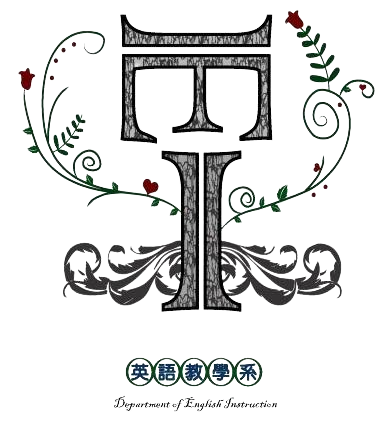Introduction
Department of English Instruction
I. About the Department
The Department of English Instruction is dedicated to the education of elementary-level English instructors. To produce skilled instructors for that end, the department trains in its students in the four most basic language skills—listening, speaking, reading, and writing. In addition to these basic abilities, the department also cultivates in its students professional knowledge of education and childhood instruction in English.
(A) Department History
Under the former Taipei Municipal Teachers College, the department was known as the Department of Foreign Languages; the department changed to its current form in 2000. The department currently provides an undergraduate and master’s degree programs (begun in 2004). Small class sizes in the undergraduate section give students and instructors a great opportunity to interact and learn; small groups are also used to teach several basic technical subjects to students of different abilities and needs.
(B) Our Aims
Total enrollment of undergraduate students (by class size) accords with the numbers prescribed by the Ministry of Education for elementary-teaching students, with 35 students in each class. The master’s program recruits 12 students per year, in principle, but also accepts ethnic Taiwanese students who were born abroad, exchange students, and students from Mainland China. Currently the department defines itself as an educational unit specializing in the training of English instructors that works to integrate both English education and general knowledge in its students. Its educational goal is to prepare global-minded English educators and related professionals for participation in today’s society.
(C) Educational Vision and Goals
Undergraduate
- To train English educators and related professionals
- To combine English instruction with general knowledge
- To prepare global-minded educators for participation in today’s society
Master’s
- To train students for research in English instruction
- To integrate research across English education and related fields
- To train students for participation in academic circles; instill in our students the basic skills for research of English education in Taiwan
(D) Core Abilities
Undergraduate
- To possess a mastery of English understanding and usage
- To have an appreciation of the English language and literature
- To possess a professional knowledge of English education
- To have the ability to think logically, make new discoveries, and solve problems in English
- To have the ability to keep improving one’s own language skills and maintain life-long study habits
- To possess a competence in service in English education and related fields and industries
Master’s
- To possess professional knowledge in English education and be capable of doing research in that field
- To be able to write academic research
- To possess the ability to think logically, make independent decisions, and perform scientific research
- To possess service expertise in the English-education field and related sectors
II. Faculty
The department currently staffs 10 full-time faculty members (2 professors, 5 associate professors, 2 assistant professors, and 1 lecturer), most of whom possess a PhD. Our faculty’s areas of specialization include: English education, literature, and linguistics; also employed at the department is one full-time foreign instructor, whom has a master’s degree in English education and is involved in the courses of basic linguistic ability, and provide language consultation for our students.
III. Core Curriculum
(A) Undergraduate
The undergraduate curriculum is divided into four primary areas: basic English ability, English instruction, linguistics, and British and American literature. The first two areas—basic English ability and English instruction—provide courses, theory, and practical knowledge for the training of English instructors and researchers. The second areas—linguistics and British and American literature—are supplemental courses that help students understand the structure and evolution of the English language; develop a sensitivity for language; apprehend and understand the substance of British/American literature; analyze and appreciate British/American literature. In addition to the above four areas of study, our department has developed close ties to the elementary schools in Taipei as well as the university’s affiliated elementary school. These ties provide our students with real-life venues in which to practice teaching while developing the ability for reflection and the education of language and literature.
Core Curriculum
- English Pronunciation Instruction
- Listening and Speaking Practice
- Writing Practice
- Introduction to Linguistics
- Introduction to Western Literature
- Introduction to Children’s Literature
- Teaching English to Children
- English Teaching Materials and Methods
- Topics in English
- Introduction to Second Language Acquisition
- English Language Assessment
- Translation
- Observation and Teaching Practice
(B) Master’s
The master’s curriculum incorporates research from several areas: English teaching and learning processes, theory of childhood language acquisition and development, problems in childhood foreign language acquisition and possible solutions, educational methods and the state of education. Our curriculum stresses the engendering in our students of a strict attitude and methodology for research, and seeks possible new research directions in English education that may grow from the dialogue between qualitative and quantitative research methodologies. Practical work and on-site classroom research in the educational field, as well as theory and research, are focal points of the curriculum. Student teaching and observation courses are included, in addition to student teaching at the affiliated school, all of which are great opportunities for our students to become acquainted with actual classroom teaching and observation.
Core Curriculum areas:
1: English instruction
2: Language development and learning
3: Language, culture, and children’s literature
4: Research methodology
IV. Prospective Students
Please go to our admissions webpage for further information: http://recruit.utaipei.edu.tw/index.php
